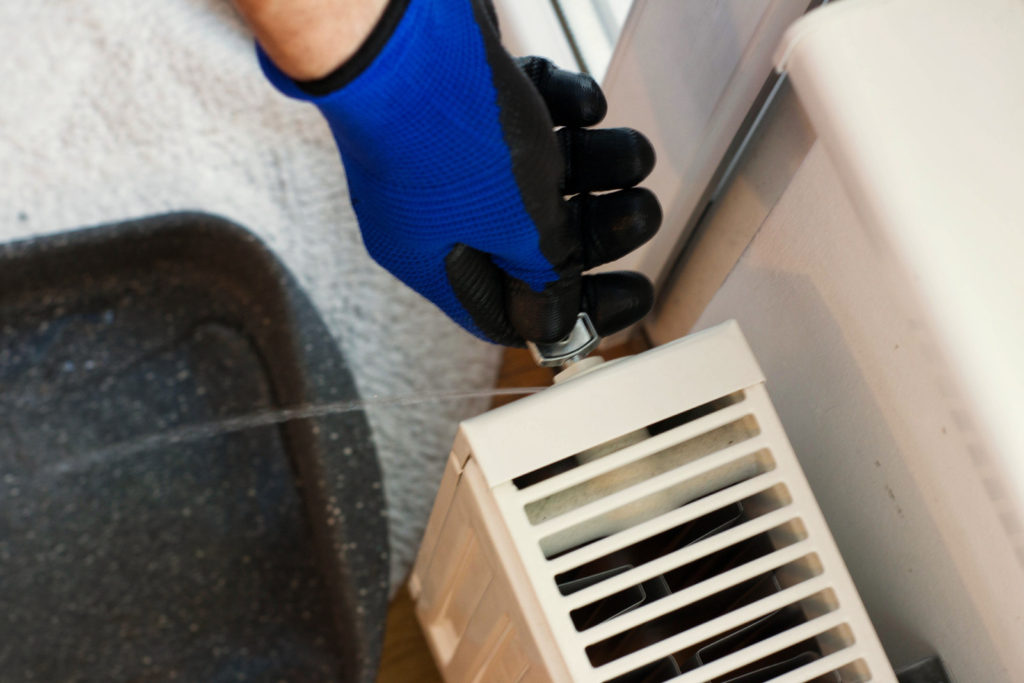Extending the life of a boiler starts before it’s even installed. From buying the right one to looking after it will all help extend the boiler’s life and give you stress free, reliable service for many years. Here, we look at the ways you can extend the boiler lifespan.
How To Extend Boiler Lifespan
- Choose the right boiler for the size of your property.
- Get a qualified professionals to install the boiler.
- Install a magnetic filter.
- Flush the system if required.
- Service your boiler annually.
- Run the boiler occasionally in the summer.
- Bleed the radiators when required.
- Add inhibitor to the system.
- Sort repairs out quickly.
- Turn heating on only when necessary.
- Familiarise yourself with the heating controls.

How long do gas boilers last?
A new combi boiler should last between 12 and 15 years, as long as it’s installed correctly by a registered gas engineer and maintained regularly. The warranty periods for many gas boiler models have increased with some giving up to 12 years, which means companies are confident in the manufacture and reliability of their product to last that long,
If you take care of it, a new boiler installed today should not need to be replaced for around 15 years. Taking care of it means annual servicing and getting repairs done as quickly as possible. Here, we look at how long boilers usually last and the many ways you can make them last longer.
11 tips on how to extend boiler life
1. Choose the right boiler for the size of your property
Think about factors such as your heating and hot water requirements and if you’re thinking of making home improvements or extensions.
2. Get a qualified professional to install the boiler
If arranging with your own installer, make sure they are fully qualified, gas safe registered and have plenty of trusted reviews. If the installer is not registered, the warranty on the boiler can be invalidated. Boiler warranties can be extended, however, by using an installer that is on the boiler manufacturer’s approved list.
3. Install a magnetic filter
This is becoming a requirement now for new boilers. Magnetic filters work by removing debris from the central heating water in the pipes that could potentially damage components in the boiler.
4. Flush the system if required
When installing a new boiler to old radiators and pipework, the engineer may recommend a flush of the system. A powerflush can add to the cost of installation but not doing it at the installation stage can hurt the boiler’s life expectancy, with corroded materials and debris finding its way into the boiler.
5. Service your boiler annually
After correct installation, this is probably the most important step to keep a boiler healthy. A service check makes sure everything is working properly; it can find any potential issues early on before they cause serious damage and ensures compliance with the boiler manufacturer’s warranty policy.
6. Run the boiler in the summer
With the heating off, the boiler only uses the hot water components and the central heating parts are pretty much idle. Running the central heating for 30 minutes once a month should help prevent problems that frequently occur when heating is turned on after months of not being used.
7. Bleed the radiators
Trapped air in radiators can put extra strain on the boiler and force it to work harder than it should. Go round each radiator and check if they need bleeding. A radiator that’s cold at the top but warm at the bottom is a sign of this.

8. Add inhibitor to the system.
Although this should have been done during the boiler installation, if you need to top up water in the system, it’s likely that the inhibitor level will be low, so you will need to replenish this too. If you don’t know how, ask an engineer to do this for you at the earliest opportunity or at the next service.
9. Sort repairs out quickly
If you notice a leaking boiler or unusual noises or smells coming from it or the radiators, get it sorted early so the issue doesn’t escalate into major problems causing damage to the boiler.
10. Turn heating on only when necessary
Leaving it on all day or for long periods when not necessary, the boiler has extra work to do that can shorten its lifespan.
11. Familiarise yourself with the heating controls
Learning the timer and programmer’s functions and settings will help control usage so the boiler is used efficiently. Getting smart thermostats will give you even more control.

Hopefully, these tips will help the boiler give you great service for many years as well as saving you money.
Can a boiler last 30 years?
Some people still have working boilers 30 years old, but as they were never built for efficiency, the extra energy used makes gas bills comparably much higher. Replacement parts for old boilers are very hard to get hold of. Boilers start losing optimum efficiency after 10 years so the general advice is to start looking from then if the warranty has ended.
There is also the chance the gas engineer will decide he can’t or won’t service a very old boiler worried that stripping down parts of an old system is likely to lead to leaks and more problems with parts difficult to source.
How efficient is a 20 year old boiler?
The standards for measuring boiler efficiency have changed over the years but going by today’s efficiency labelling, a 20 year old boiler is around 70% efficient, which would have a letter rating of F or G. This translates to higher fuel bills as old boilers cost more to run.
How do you know when a boiler needs replacing?
Frequently needing repairs and regularly high energy bills suggest it’s time to replace your boiler. You are likely to save money from the warranty alone. Old boilers require a good boiler cover plan for the many breakdowns. A new boiler that comes with a warranty will only require an annual service, saving you hundreds each year.
*The information in this article should be used for general guidance only and not as financial advice. Full details are on the link in the footer to our disclaimer page. Always discuss your requirements with a competent and suitably qualified professional before undertaking any work.

